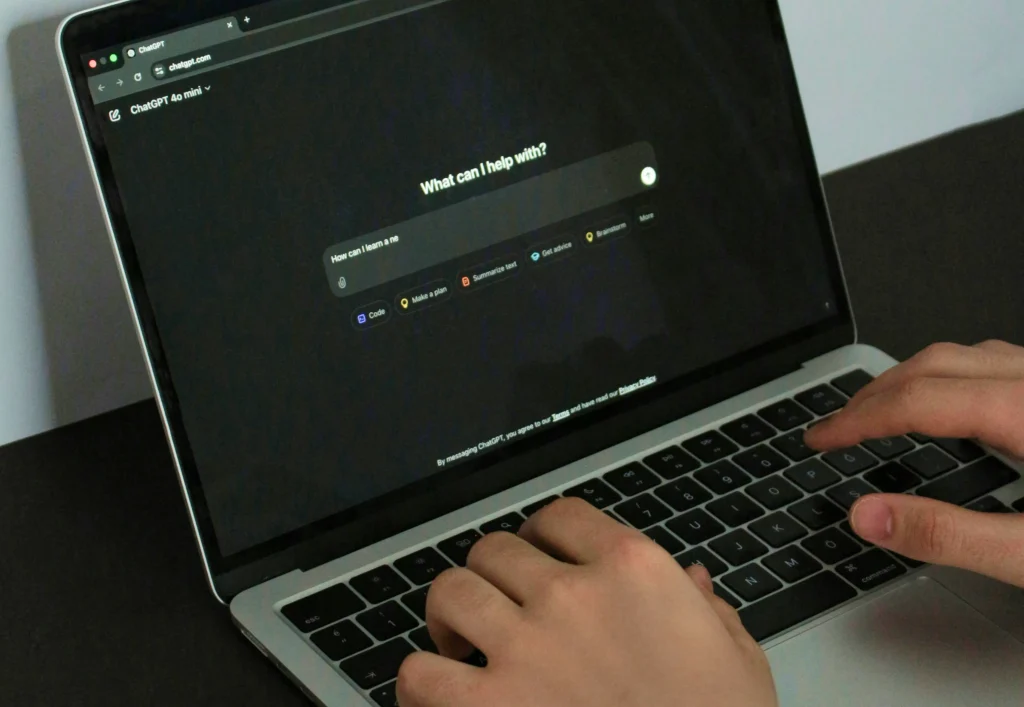5 types of interview questions (and when to ask them)
Getting ready to interview a candidate for one of your job openings, but struggling to decide which questions to ask? Luckily, with some good preparation (and the help of this article) you’ll know exactly the types of interview questions to ask and when to ask them!
Table of contents
By asking the right questions during the job interview, you increase your chances of finding the perfect hire for your open position.
Targeted questions can help you uncover information about the skills and experience your candidate has. It gives you an insight into whether they will be able to perform the requirements of the role. But they can also help you assess whether the applicant is a good cultural fit for your company, or if they might add to the culture.
Below, we introduce the 5 main types of interview questions and how you can leverage each type to get the information you need to make your hiring decision. You’ll also find a list of example interview questions for each type, plus an explanation of how to use them during each stage of the interview process. Let’s go!
- The 5 types of interview questions
- When to ask which interview questions
- Preparing for the interview
The 5 types of interview questions
Interview questions are often divided into five different types of questions. Each type of question serves a different purpose and helps you to discover different information from your candidate.
1. Opener interview questions
Some interviewers are so eager to start testing the skills and knowledge of a candidate that they completely forget about a crucial part of the interview: The introduction.
Job interviews can be scary, and there’s a good chance your candidate is nervous. Although this is normal, nerves can get in the way of holding a successful interview. They can result in short stammering answers that miss out information, even if deep down the candidate does know the answer. If nerves make your candidate blank out on the spot, you might end up getting a completely distorted impression of their capabilities.
Instead, try to open each interview with a few light-hearted, straightforward questions. They should be general, unspecific, and easy to answer.
Opener interview questions examples:
- What do you love most about your job?
- Why did you choose this career?
- What has your career journey been so far?
2. Hard skills interview questions
Hard skills are job-specific skills or qualifications that help a candidate perform their job. Example hard skills include having a specific certification or knowing how to use a certain computer program that’s relevant to the job.
Hard skills interview questions test a candidate’s relevant experience in this area. They can be closed questions (“do you have this qualification”), but also more process-related (“walk me through your process for this task”).
Hard skills interview questions examples:
- Which tools are you most comfortable working with?
- What training have you had in the past?
- Do you have a specific area of expertise within the field?
3. Soft skills interview questions
Soft skills are social, methodological, and personal competencies that allow employees to perform their roles in a goal-oriented and effective way. Examples of soft skills include having great communication skills or being an empathetic leader.
So soft skills interview questions help to assess a candidate’s communication, social, and interpersonal skills. In a way, they help uncover a person’s personality rather than their job-specific qualifications.
Soft skills interview questions examples:
- How do you handle stress?
- How do you cope with angry customers?
- How do you stay motivated in your role?
4. Behavioural interview questions
Another common interview question type is the behavioural question. As the name suggests, these questions are focussed on the behaviour of a candidate in past situations and how they learned from them. They build on a candidate’s soft skills.
With behavioural based interview questions, you are looking for specific examples of things that happened in past working situations.
Behavioural interview questions examples:
- Tell me about a time when you worked on a large project. How did you organise the workflow to ensure expectations and deadlines were met?
- Describe a situation during which you had to collaborate with team members cross-functionally.
- Give an example of how you handled a challenge in the workplace.
Tip: To get the best (and clearest) answers to your behavioural questions, you can ask the candidate to answer them using a four-step answering framework: The situation, task, action, and result (STAR) method.
This method is often used to provide effective feedback, and we explain it in more detail in our article about 10 powerful feedback models to use at work.
5. Situational interview questions
Situational based interview questions are similar to behavioural questions. Instead of focusing on what a candidate has done in the past, it’s about what they might do in the future. These questions are sometimes called operational interview questions.
Situational questions aimed at discovering if the candidate’s future actions match your company values, culture, and processes. Situational questions also test a candidate’s problem-solving skills. In these questions, you sketch a hypothetical situation and ask the candidate how they would handle this situation.
Situational interview questions examples:
- Imagine you find out a colleague made a critical mistake. What do you do?
- Imagine your line manager telling you to do something, even after you already explained that you know from experience this is the wrong approach. What do you do?
- What would you do if you made a mistake, but nobody else noticed it?
Also check: Job interview questions
When to ask which interview questions
Now you know more about the different types of interview questions and how they can help you assess a candidate, it’s time to find out how to use them in action.
Should you already ask detailed situational questions during the phone screening, or is it better to leave them till the second or third interview? And when to ask hard or soft skills questions?
To help you get an idea of when to use which, we’ve collected a list of example interview questions for each stage of the interview process.
Example screening interview questions:
- Tell me about your background/your career so far.
- Why would you like to work for our company?
- Are you interviewing with other companies?
- What did you do during that year-long gap in your CV? (in case of employment gap)
- What are your salary expectations?
Note that the screening interview is just one of the multiple steps in the wider screening process. This is a separate process that can include reference checks or a screening survey that should be filled out during the application. For a detailed explanation of this separate process, please see our screening process glossary page. If you are interested in more information, don’t forget to check our articles like employee selection methods and candidate screening best practices.
Example first interview questions:
- Can you elaborate on what experience you have within our industry/field of work so far?
- What is your greatest strength?
- What is your greatest weakness?
- Can you give me an example of when you handled a large project?
- Have you worked in an agile company before? What did you like or dislike about this way of working?
Example second interview questions
- What would you say is our company’s main USP?
- Can you name some of our top competitors and what they do well?
- We are planning a large campaign/project and want you to take the lead on it. How would you approach this situation?
- Can you tell me about a time you helped out a colleague?
- Can you give me an example of a time you had to work cross-departmentally on a project? What challenges did you face, and how did you overcome them?
Example third interview questions
- Can you describe what your ideal working environment looks like?
- Tell me about the time in your career so far when you felt most successful. What was your working situation like at that time?
- Say we hire you for the position. What are you planning to do within your first three months on the job?
- Say we hire you for this position. What do you expect from us during your first months to help you settle into the team and your position?
- If you had to name one thing that might prevent you from joining our team, what would it be? How could we ensure this doesn’t prevent you from accepting a potential offer?
Preparing for the interview
Now, you know more about the different types of interview questions you can ask your candidates (and when to ask which). But a solid candidate interview consists of more than just asking the right questions.
If you really want to ensure you hire the best candidate, you should do some further preparation before your interview. Luckily for you, we’ve written a complete guide on how to prepare for and hold an interview.
Read now: How to conduct an interview—best practices for hiring managers.
Frans Lelivelt
Frans is JOIN's multilingual Senior Content Manager. His main topic of interest in the recruitment space is DEI and how companies can reduce their (unconscious) biases to make the world of work a fairer, kinder place for everyone. Outside of work, he tries to do the same for animals, spending much of his spare time in the kitchen preparing plant-based feasts.


